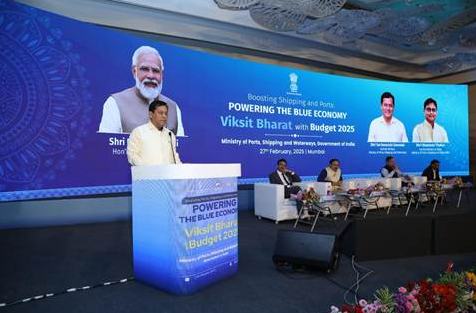
Union Minister Sarbananda Sonowal of Ports Shipping and Waterways revealed multiple groundbreaking maritime actions which target contemporary port framework building as well as global trade strengthening along with business simplification in maritime operations. The initiatives work to establish port operation standards while implementing digital systems that boost logistics performance to enhance global competitiveness in Indian ports. During a Mumbai-based high-level stakeholder meeting convened on February 27, 2025 industry leaders teamed up with maritime experts and policymakers to discuss port and shipping sector reforms and future strategies which led to major announcement releases.
Key Announcements & Their Significance
One Nation-One Port Process (ONOP) – Standardization of Indian Ports
The One Nation-One Port Process initiative introduced by the government aimed to improve business operational ease. The ONOP initiative will establish standard procedures and digital systems for Indian ports which aims to decrease operational troubles stemming from varied documentation practices and complicated procedures.
Key Features of ONOP:
-
Reduction in Documentation:
-
The number of paperwork used for container operations decreased by 33% from 143 to 96 documents.
-
The number of bulk cargo operation documents decreased by 29% as operations went from 150 to 106.
-
-
The implementation of International Standards as part of cargo clearance and turnaround optimization.
-
The enhanced transparency measures with digitalization methods help decrease paperwork while shortening operational delays.
-
The implementation of these changes positions India better in maritime international trade and creates better performance from port facilities.
ONOP represents an essential component for Maritime Amrit Kaal Vision 2047 which enables sustainable port management of international standards.
Sagar Ankalan - Logistics Port Performance Index (LPPI) for FY 2023-24
The introduction of the Logistics Port Performance Index (LPPI) became necessary for enhancing India's port competitive stance on the global scale. LPPI functions to establish performance standards for ports through international benchmarking processes.
Key Highlights of LPPI:
-
The assessment encompasses major along with non-major ports through three evaluation categories.
-
Dry Bulk
-
Liquid Bulk
-
Container Cargo
-
-
Performance Indicators:
-
Cargo handling efficiency
-
Turnaround time of vessels
-
Berth idle time & ship berth-day output
-
Container dwell time (time taken for containers to move in/out of ports)
-
-
The ranking evaluation process uses data-based criteria to establish clear visibility throughout the port assessment procedure.
The measures are intended to enhance India's logistics infrastructure for better placement on the World Bank’s Logistics Performance Index and the current standing of 22nd (2023) in "International Shipments".
Bharat Ports Global Consortium – Expanding India’s Maritime Presence
The Government formed the Bharat Ports Global Consortium to enhance international trade infrastructure and maritime port development operations.
Objectives:
-
India should enhance its maritime trade partnerships to develop better global supply chains.
-
Investment should be promoted to develop and operate ports.
-
The 'Make in India' program needs support through improvements to shipping logistics systems for export purposes.
The consortium brings together:
-
IPGL (Indian Ports Global Limited) – Operational Management
-
SDCL (Sagarmala Development Company Limited) operates as a financial investment entity.
-
The Indian Port Rail & Ropeway Corporation Limited operates as the organization responsible for developing infrastructure through IPRCL (Indian Port Rail & Ropeway Corporation Limited).
India will rise as a major international maritime trading nation through an initiative that decreases expenses and improves transportation systems.
MAITRI – Digital Transformation in Trade through AI & Blockchain
Indian industries gained improved trade efficiency through the introduction of MAITRI (Master Application for International Trade and Regulatory Interface) platform which decreased bureaucratic delays.
Key Features of MAITRI:
-
AI & Blockchain-based trade integration for faster customs clearance.
-
The initiation of Virtual Trade Corridors (VTCs) establishes strong international logistics systems.
-
First implementation: India-UAE VTC, later expanding to BIMSTEC & ASEAN nations.
-
Digital trade documents improve export-import speed through their implementation for transactions.
MAITRI supports the implementation of India-Middle East-Europe Economic Corridor (IMEEC) and cuts both processing time and trade expenses.
India Maritime Week (October 27-31, 2025, Mumbai)
The India Maritime Week event in India will display both the maritime history and development achievements of the country.
Event Highlights:
-
India has selected 'Maritime Virasat (Heritage) and Maritime Vikas (Development)' as its main focus.
-
Representation from 100 countries with participation of 100,000 delegates.
-
Hosting of:
-
4th Global Maritime India Summit (GMIS).
-
2nd Sagarmanthan – The Great Oceans Dialogue (strategic maritime discussions).
-
The initiative seeks to establish India as a leading force in maritime policies and infrastructure together with a trade facilitation framework.
Maritime Budget Reforms – ₹25,000 Crore for Modernization
The government dedicated ₹25,000 crore to maritime development within Union Budget 2025.
Key Budget Provisions:
-
Maritime Development Fund (MDF):
-
The MaritimeDevelopment Fund delivers extended financial resources to support port and shipping private investments.
-
-
Shipbuilding Financial Assistance Policy (SBFAP 2.0):
-
The policy delivers financial backing for Indian shipbuilding enterprises to contend against international companies in global markets.
-
-
Ship Breaking Credit Note Scheme:
-
The scheme promotes enduring sustainable ship recycling through green shipbreaking practices.
-
-
Customs Duty Exemption for 10 Years:
-
Supports domestic shipbuilding and port infrastructure.
-
-
Tonnage Tax Regime Extension for Inland Vessels:
-
River transport serves as an environmentally friendly logistics choice that receives promotional support under this policy.
-
National Centre of Excellence in Green Port & Shipping (NCoEGPS) Launched
NASA launched the National Centre of Excellence in Green Port & Shipping (NCoEGPS) website to increase sustainability in maritime operations.
Objectives:
-
The ports and shipping industries will achieve lower carbon emissions.
-
The use of green technology must develop eco-friendly structures for port infrastructure.
-
The adoption of LNG along with hydrogen-based alternative fuels for promotion purposes.
This aligns with India’s commitment to Net-Zero Emissions and Sustainable Maritime Growth.
Conclusion
Strategic reforms position India to be a prominent maritime power at the international level. All the contemplated actions meet the criteria of Atmanirbhar Bharat and PM Gati Shakti and Viksit Bharat 2047. India is transforming global commerce through efficiency policies and sustainable solutions and digital change to be a global maritime leadership force.



 Sylheti Language Row: Identity, Politics, and Partition Legacy
Sylheti Language Row: Identity, Politics, and Partition Legacy Hand, Foot and Mouth Disease (HFMD) in Delhi Schools
Hand, Foot and Mouth Disease (HFMD) in Delhi Schools Supreme Court Stresses Protection for Honest Officers Under PCA
Supreme Court Stresses Protection for Honest Officers Under PCA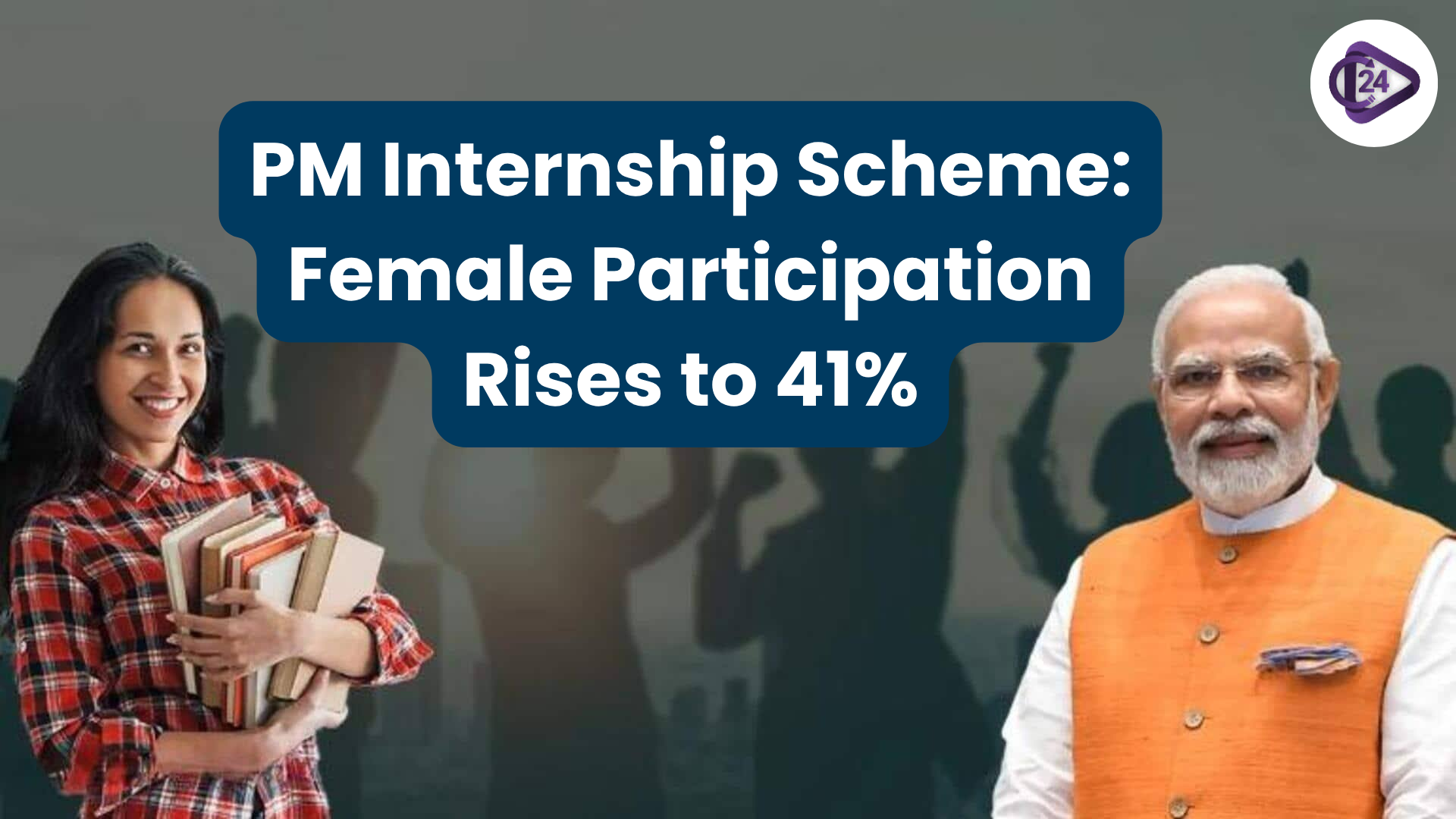 PM Internship Scheme: Female Participation Rises to 41% from 31%
PM Internship Scheme: Female Participation Rises to 41% from 31%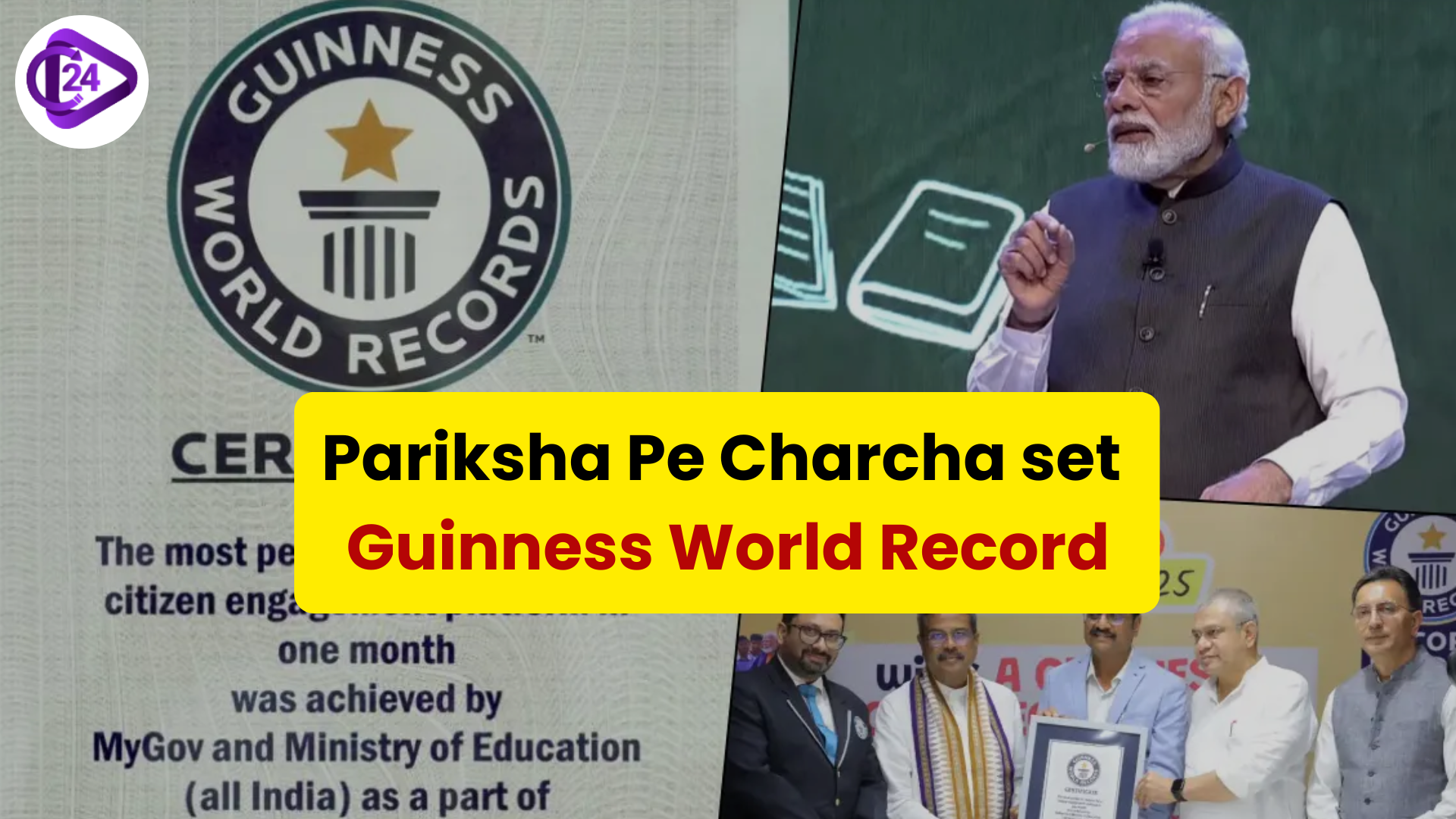 Pariksha Pe Charcha Sets Guinness World Record by highest number of registrations
Pariksha Pe Charcha Sets Guinness World Record by highest number of registrations Pingali Venkayya: The Man Behind India’s Tricolour
Pingali Venkayya: The Man Behind India’s Tricolour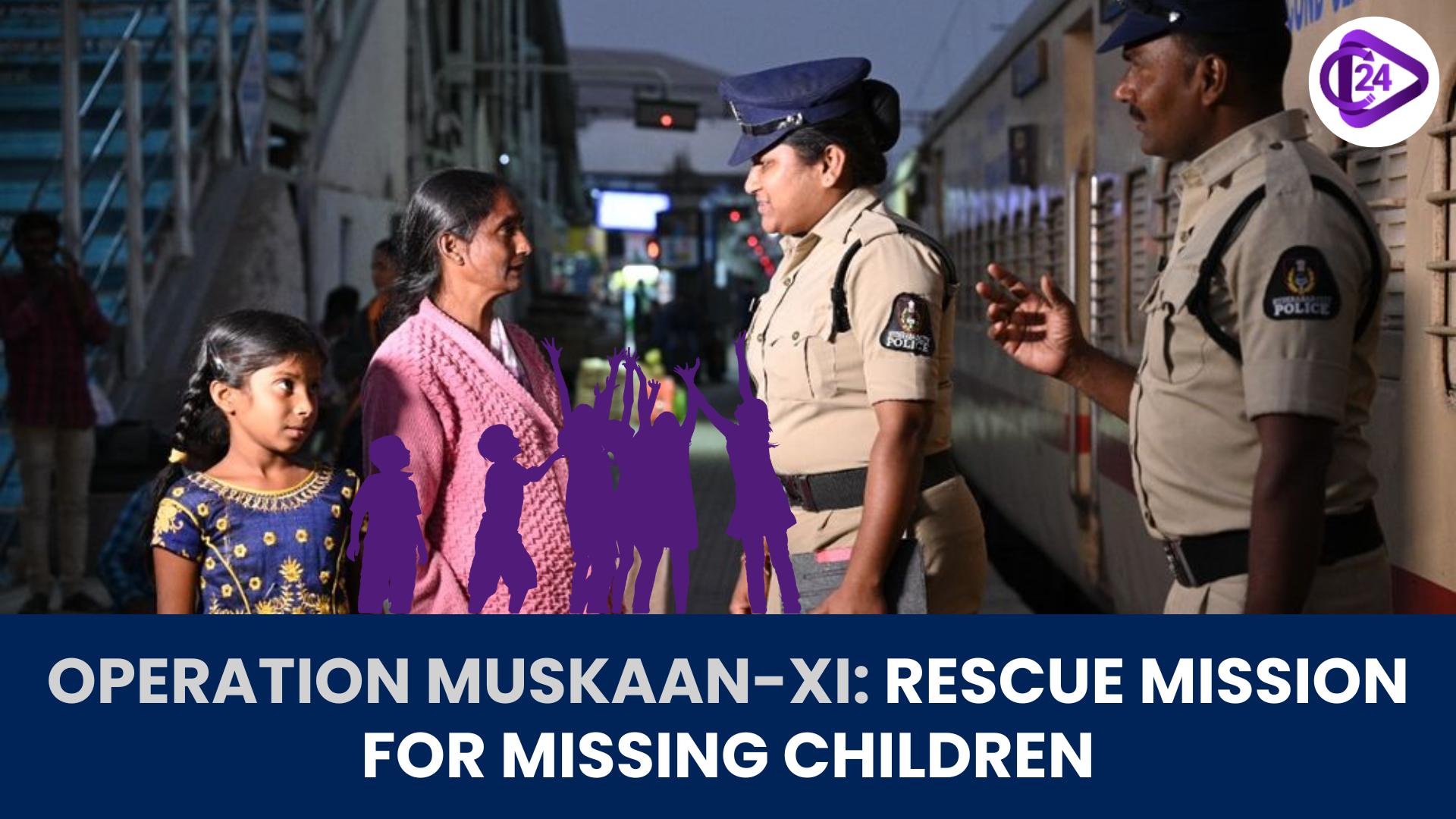 Operation Muskaan-XI: A Lifeline for India’s Lost and Exploited Children
Operation Muskaan-XI: A Lifeline for India’s Lost and Exploited Children 71st National Film Awards 2025: Celebrating Diversity, Craft, and Cultural Narratives in Indian Cine
71st National Film Awards 2025: Celebrating Diversity, Craft, and Cultural Narratives in Indian Cine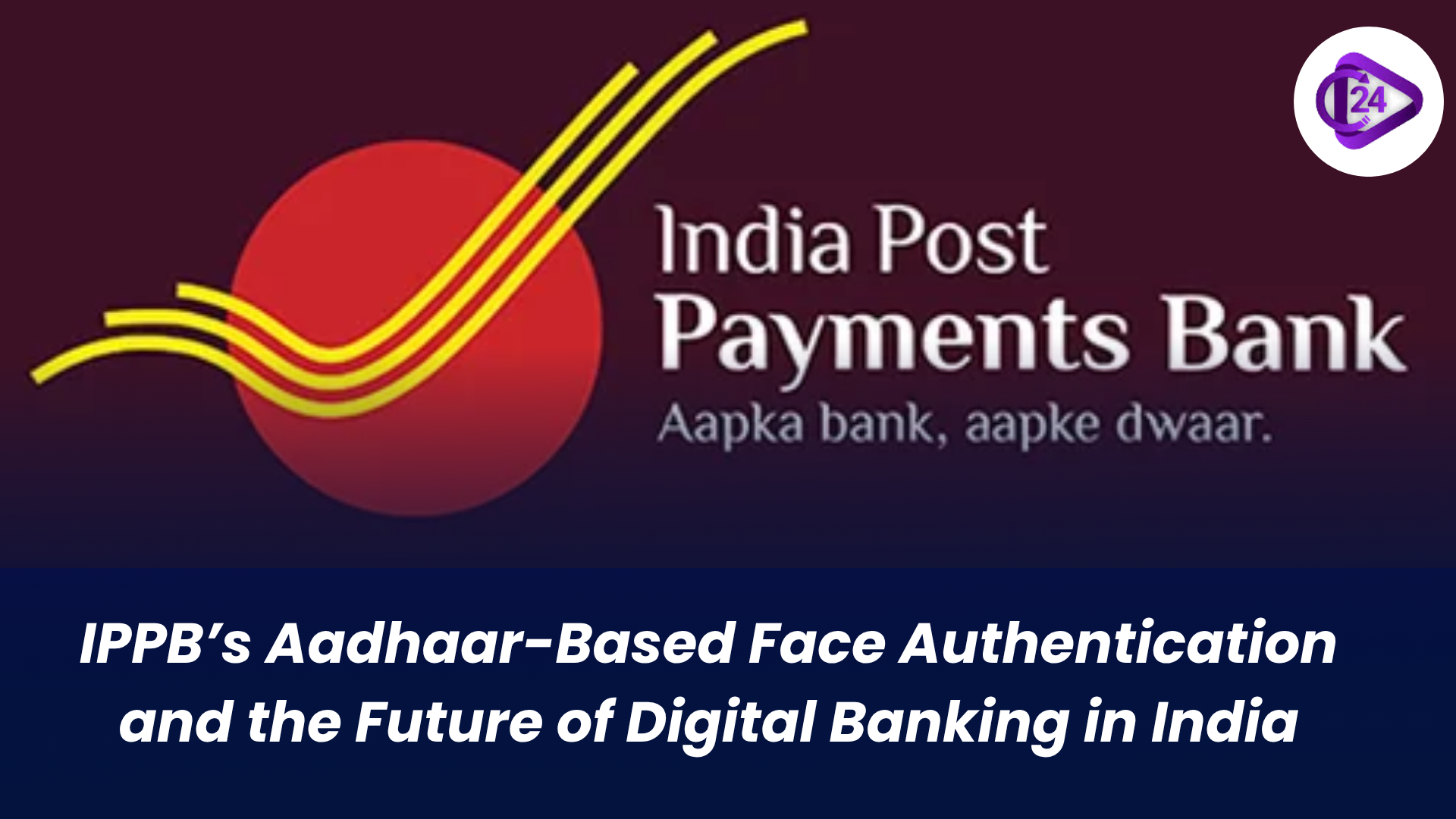 IPPB’s Aadhaar-Based Face Authentication and the Future of Digital Banking in India
IPPB’s Aadhaar-Based Face Authentication and the Future of Digital Banking in India Lt.-Gen. Pushpendra Singh Appointed as Vice-Chief of Army Staff
Lt.-Gen. Pushpendra Singh Appointed as Vice-Chief of Army Staff






